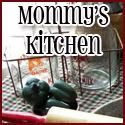
Frohe Weihnachten!
Germany is rich in tradition and culture when it comes to Christmas. I come from a German family and when my parents moved to the U.S. when I was younger, thankfully they continued to keep the German culture alive in our house.
St. Nikolaus Day

One such tradition is St. Nikolaus Day. This is celebrated on December 6th. On this day children place their boots outside their home and hope that St. Nikolaus will fill them with apples, oranges/tangerines, lebkuchen, cookies, or fruit bread. Traditionally these items were reserved for special occasions and children did not get such sweets on a regular basis. If the children had been good and polite during the year, they received treats; if they were not good, they had a switch placed in their boot.
Christmas Eve
 The German Christmas is celebrated on Christmas Eve. Parents decorate the Christmas tree and place the presents underneath without the children around. The Christmas tree also serves as a present since no one has seen it until the Christkindl brings the presents. The Christkindl means “Christ Child.” In Germany the Christkindl is the bringer of gifts for children. A young girl with a golden crown and wings usually portrays the Christkindl. On Christmas Eve, traditional food is goose, fish, or deer. In my family, we always have deer on Christmas Eve and have goose on Christmas Day.
The German Christmas is celebrated on Christmas Eve. Parents decorate the Christmas tree and place the presents underneath without the children around. The Christmas tree also serves as a present since no one has seen it until the Christkindl brings the presents. The Christkindl means “Christ Child.” In Germany the Christkindl is the bringer of gifts for children. A young girl with a golden crown and wings usually portrays the Christkindl. On Christmas Eve, traditional food is goose, fish, or deer. In my family, we always have deer on Christmas Eve and have goose on Christmas Day.
December 25 is known as the “1st Christmas Day”. On this day, families visit the other set of grandparents (usually the father’s parents). There is no traditional food eaten on this day, it is more like a traditional Sunday dinner in the U.S.
December 26 is known as the “2nd Christmas Day”. On this day, families visit relatives who live out of town. Again, the traditional food is more of a Sunday dinner.
Germany has many rich traditions during the Christmas season, from celebrations to foods. I am fortunate to have been raised in these deep cultural traditions during my childhood and now have the opportunity to pass these traditions to my daughter while also teaching my husband about my cultural traditions.





















I love these Christmas around the world posts. I make my students write research papers over winter holidays, but you've still found some information I had not read.
ReplyDeleteYou've been tagged:
http://www.allaboutkimberly.com/and-the-award-goes-to
I enjoyed reading your Christmas traditions.
ReplyDelete